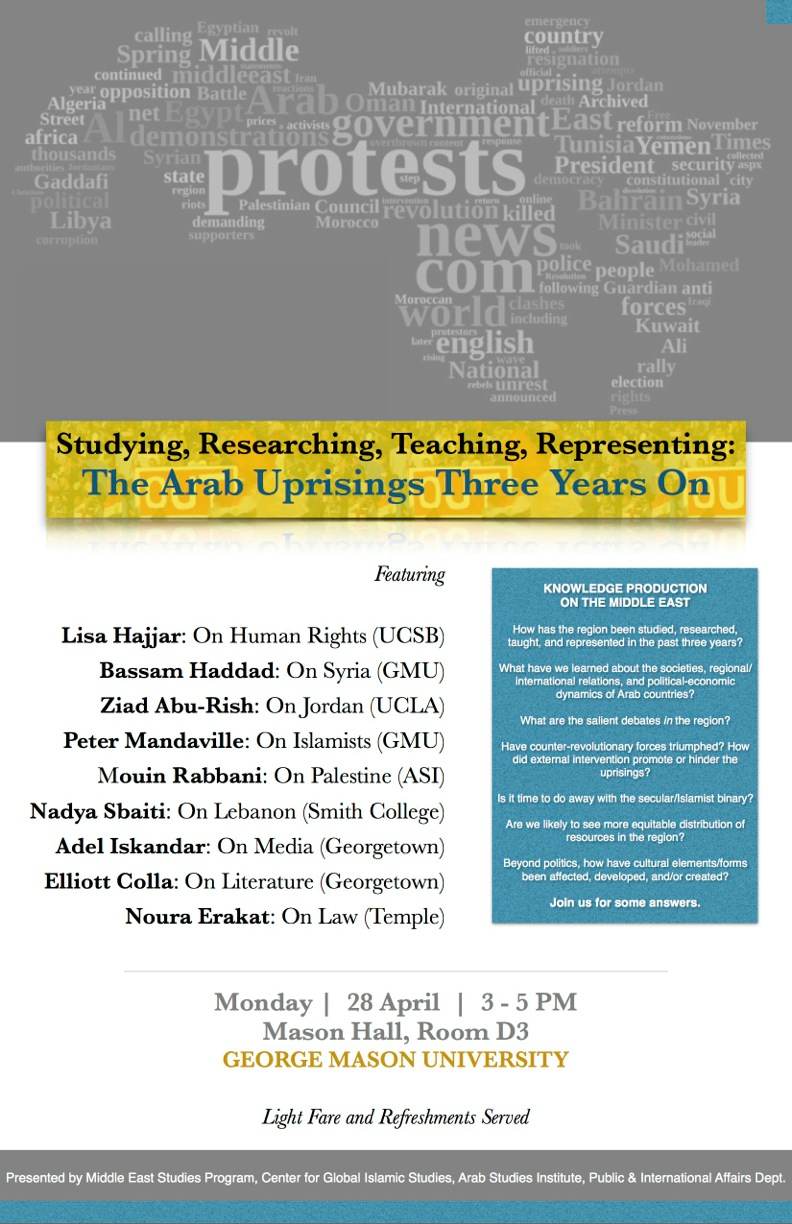Join George Mason University and the Arab Studies Institute for a panel discussing:
- How has the region been studied, researched, taught, and represented in the past three years?
- What have we learned about the societies, regional/international relations, and political-economic dynamics of Arab countries?
- What are the salient debates in the region about the region?
- Have counter-revolutionary forces triumphed?
- Is it time to do away with the secular/Islamist binary in favor of more nuanced understandings of political organization?
- Beyond politics, how have cultural elements/forms been affected, developed, and/or created?
Studying, Researching, Teaching, Representing: The Arab Uprisings Three Years On
Monday, 28 April 2014
3:00 - 5:30 PM
Mason Hall, Room D3
George Mason University
Featuring
- Lisa Hajjar: On Human Rights (UCSB)
- Bassam Haddad: On Syria (GMU)
- Ziad Abu-Rish: On Jordan (UCLA)
- Peter Mandaville: On Islamists (GMU)
- Mouin Rabbani: On Palestine (ASI)
- Nadya Sbaiti: On Lebanon (Smith College)
- Adel Iskandar: On The Media (Georgetown)
- Elliott Colla: On Literature (Georgetown)
- Noura Erakat: On Law (Temple)
Light Fare and Refreshments Served
